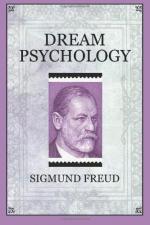A young physician, who had heard this dream of my colleague when it was told, must have felt implicated by it, for he hastened to imitate it in a dream of his own, applying its mode of thinking to another subject. The day before he had handed in a declaration of his income, which was perfectly honest, because he had little to declare. He dreamt that an acquaintance of his came from a meeting of the tax commission and informed him that all the other declarations of income had passed uncontested, but that his own had awakened general suspicion, and that he would be punished with a heavy fine. The dream is a poorly-concealed fulfillment of the wish to be known as a physician with a large income. It likewise recalls the story of the young girl who was advised against accepting her suitor because he was a man of quick temper who would surely treat her to blows after they were married.
The answer of the girl was: “I wish he would strike me!” Her wish to be married is so strong that she takes into the bargain the discomfort which is said to be connected with matrimony, and which is predicted for her, and even raises it to a wish.
If I group the very frequently occurring dreams of this sort, which seem flatly to contradict my theory, in that they contain the denial of a wish or some occurrence decidedly unwished for, under the head of “counter wish-dreams,” I observe that they may all be referred to two principles, of which one has not yet been mentioned, although it plays a large part in the dreams of human beings. One of the motives inspiring these dreams is the wish that I should appear in the wrong. These dreams regularly occur in the course of my treatment if the patient shows a resistance against me, and I can count with a large degree of certainty upon causing such a dream after I have once explained to the patient my theory that the dream is a wish-fulfillment.[5] I may even expect this to be the case in a dream merely in order




